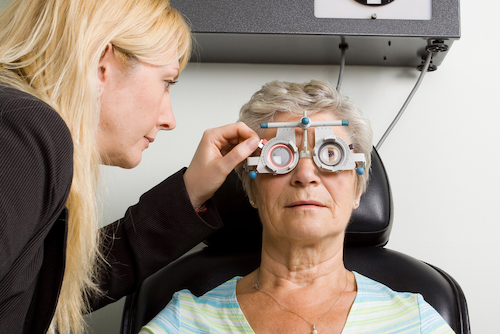Standards of healthcare in Austria are generally very high, and dental care is no exception. However, there are some differences between the levels of care the state will cover for general medical complaints, and for dentistry.Those without private health insurance in Austria will find that they are not fully covered for dental care, particularly for anything deemed ‘cosmetic’ or not strictly medically necessary.
What Dental Treatments Are Covered By State Healthcare In Austria?
All emergency treatments, such as root canals, tooth loss and dental surgery, will be covered by your state health insurance. Some orthodontics are also covered by state healthcare, but not all — be sure to check with your dentist before booking an appointment.
For non-emergency treatments, such as orthodontics which are covered by state healthcare, you might find that you will still have to pay a percentage of the cost yourself. This can be between 50-80% depending on the treatment you are receiving and your personal circumstances.
Unlike in many other European countries, children’s dental care is not fully covered by the state. They have exactly the same rights as adult patients: anything deemed medically necessary will be covered, but any cosmetic or optional treatments will need to be out-of-pocket costs, or paid by private insurance.

Implants, cosmetic treatments, crowns and bridges are not covered by state healthcare, so you will either need to pay for these directly or take out private health insurance that covers these. Private dentists need to adhere to a specific fee scale, set by the government, so although paying for your own care can be pricey, it should be possible to work out the level of budget you require and not encounter any nasty surprises.
Dentists who accept state healthcare patients, and do not charge for their services, will have a sign saying “Kassenarzt” or “Alle Kassen” somewhere in their surgeries.
Quality Of Dental Care In Austria
The quality of dentistry in Austria is very high and is centrally regulated by the Austrian Dental Chamber (Österreichische Zahnärztekammer). The Dental Chamber will periodically check up on dentists to make sure they are providing the requisite level of care, and to ensure that their fees are fair and in line with the maximums set by the state.
Dentists must have a university qualification in dentistry, usually obtained after a full medical degree. They must also take part in continued professional development throughout the course of their careers, although there is no set number of hours they must train per year.

Most dentists will work with a mixture of state and private patients — just under 20% of dentists only work privately.
What Ophthalmic Care Is Available In Austria?
Austria has a very high level of ophthalmic care, with highly trained opticians and ophthalmologists practising throughout the country. Ophthalmologists must train for a minimum of five years, and then complete a supplementary year of specialist training, before they are allowed to practise.
All optical care is free in Austria, including check-ups. The only exception is if you want to choose your own cosmetic options, such as designer frames.

You do not have to register with a specific optician when you arrive in Austria; you can just choose which one to visit when you decide you need a check-up. You will not need to be referred by your GP — you can simply find out which opticians practise in your local area and visit one of them.
Criticisms Of Ophthalmic Care In Austria
Even though the standards of care are very high overall, there are still some challenges to be faced when looking for ophthalmic care in Austria. One of the main criticisms is the distribution of opticians and specialists around the country: almost half of the entire nation’s ophthalmologists live and work in Vienna. The further you live from a city, the less likely you are to be able to receive quick and efficient care in your local area.
The division between opticians and ophthalmologists is another source of controversy in Austria. Traditionally, opticians deal with basic eyesight concerns, such as deciding whether you need glasses and what your prescription should be; whereas ophthalmologists deal with more complex medical concerns. However, in recent years opticians have been conducting more in-depth ophthalmic tests and offering these for free, sometimes recouping the costs by charging for frames. This presents a challenge because opticians do not receive the same level of training as ophthalmologists, so sometimes a serious medical problem can be missed, meaning that you might not get the level of treatment you require.
If you are concerned about your eye health, it is therefore a good idea to find an ophthalmologist rather than an optician, although as already mentioned this can be difficult if you live outside of a city.

There are some budgetary concerns around ophthalmic treatment even in hospitals, too. Some hospitals are not sufficiently well-funded to be able to provide expensive options such as official anti-VEGF treatments, which use specific drugs. In Austria, medical specialists are allowed to use off-label drugs that have not been tested as thoroughly where there is a financial need to do so, and there are reports of this happening in ophthalmic hospitals around the country.
You can expect a high level of general optical care, then, but if you need specialist eye care in Austria then it might be worth taking out a private health insurance package that includes this as an optional extra. If you have been to see an optician but you are still worried about your eye health, make sure you book an appointment with a specialist eye doctor, ideally in a hospital — you should not need a referral from your doctor in order to do this.
Would you like to share your experience of life abroad with other readers? Answer the questions here to be featured in an interview!

